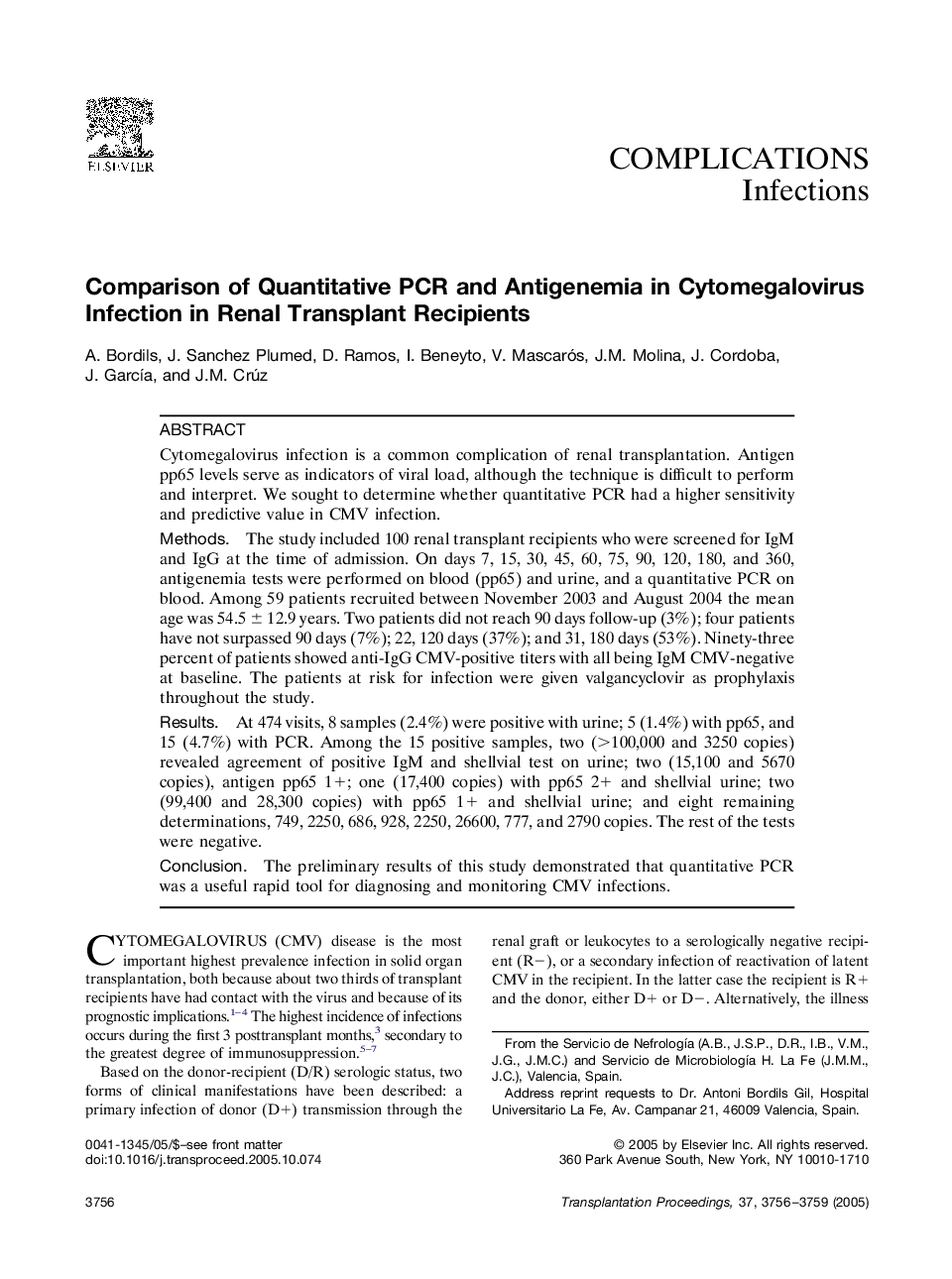| Article ID | Journal | Published Year | Pages | File Type |
|---|---|---|---|---|
| 4263950 | Transplantation Proceedings | 2005 | 4 Pages |
Cytomegalovirus infection is a common complication of renal transplantation. Antigen pp65 levels serve as indicators of viral load, although the technique is difficult to perform and interpret. We sought to determine whether quantitative PCR had a higher sensitivity and predictive value in CMV infection.MethodsThe study included 100 renal transplant recipients who were screened for IgM and IgG at the time of admission. On days 7, 15, 30, 45, 60, 75, 90, 120, 180, and 360, antigenemia tests were performed on blood (pp65) and urine, and a quantitative PCR on blood. Among 59 patients recruited between November 2003 and August 2004 the mean age was 54.5 ± 12.9 years. Two patients did not reach 90 days follow-up (3%); four patients have not surpassed 90 days (7%); 22, 120 days (37%); and 31, 180 days (53%). Ninety-three percent of patients showed anti-IgG CMV-positive titers with all being IgM CMV-negative at baseline. The patients at risk for infection were given valgancyclovir as prophylaxis throughout the study.ResultsAt 474 visits, 8 samples (2.4%) were positive with urine; 5 (1.4%) with pp65, and 15 (4.7%) with PCR. Among the 15 positive samples, two (>100,000 and 3250 copies) revealed agreement of positive IgM and shellvial test on urine; two (15,100 and 5670 copies), antigen pp65 1+; one (17,400 copies) with pp65 2+ and shellvial urine; two (99,400 and 28,300 copies) with pp65 1+ and shellvial urine; and eight remaining determinations, 749, 2250, 686, 928, 2250, 26600, 777, and 2790 copies. The rest of the tests were negative.ConclusionThe preliminary results of this study demonstrated that quantitative PCR was a useful rapid tool for diagnosing and monitoring CMV infections.
